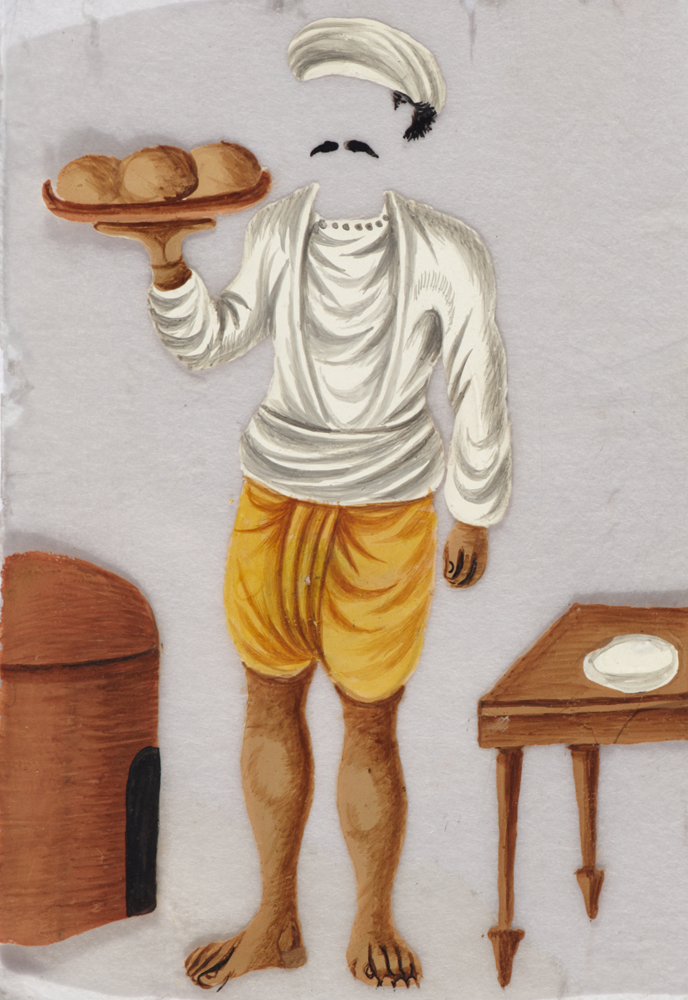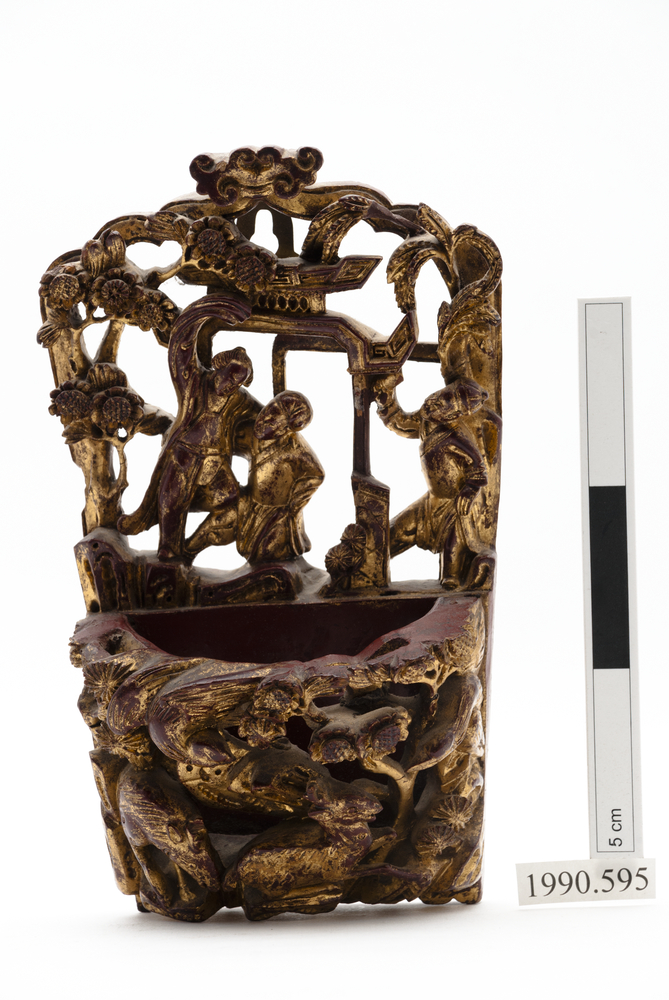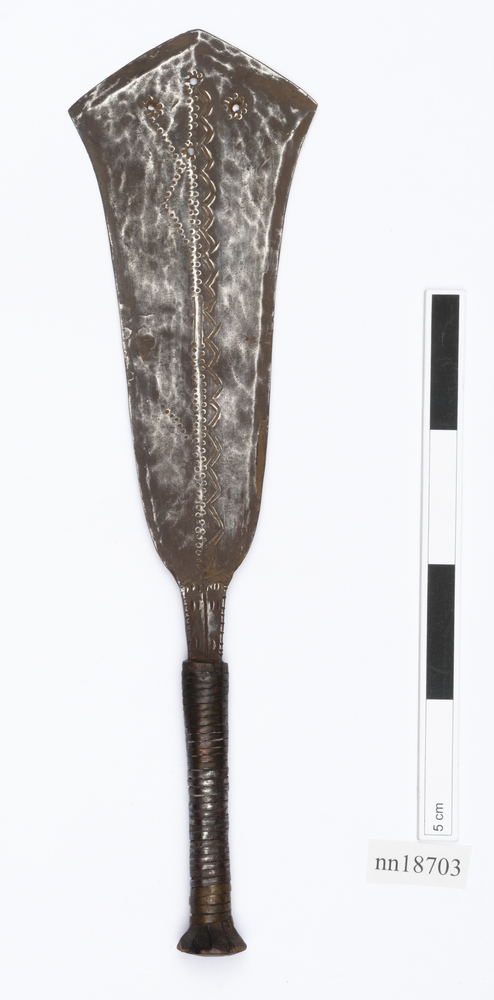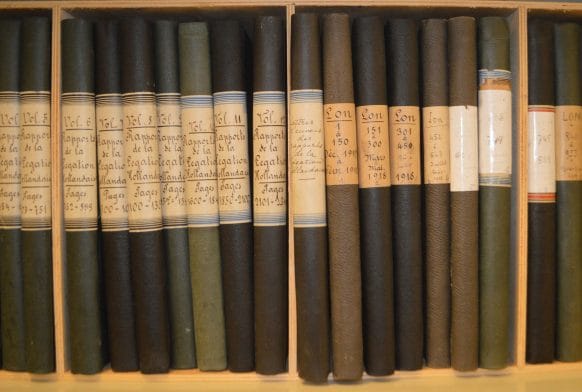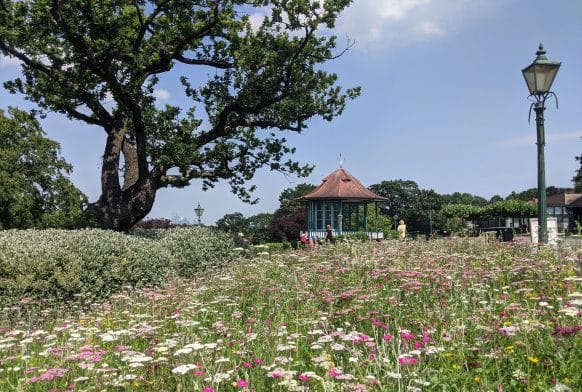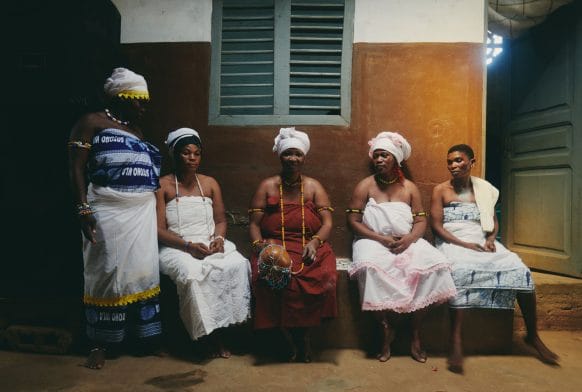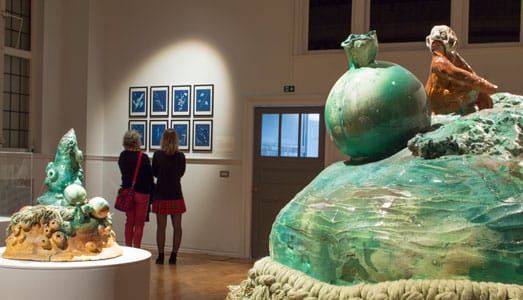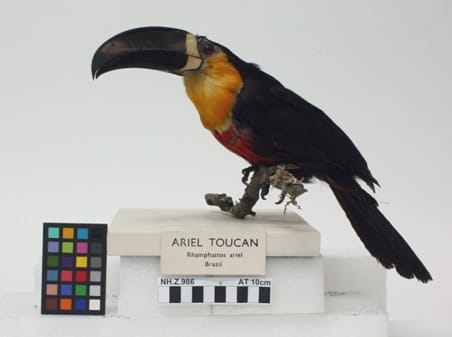
Very long red silk banner onto which four large Chinese characters are couched in gold-coloured metal-wrapped thread. They read "ji shi po xin" (To save life with an old woman's heart), which is an ancient text to describe the basic conduct to be a good physician. These are flanked by two figures who may be depictions of two of the Eight Immortals. The right hand one is clean shaven. In his left hand he is holding a stocking with gifts protruding from the top. The one on the left is bearded and in his left hand is a stocking with a small pink reindeer emerging from the top. Each is holding a ruyi sceptre, 'ruyi' meaning 'as you desire', a token of good wishes.
The tip is decorated with a stylized form of sacred lingzhi fungus, a Daoist symbol of long life and prosperity. There are couched scripts on the right which could be translated as: 'In celebration of the return of Dr John Lyal from Great Britain', and one on the left: Presented by the congregation of Penghu (town name) Holy Assembly in Yongchun county, Fujian province.
The bottom edge and sides of the textile have a wide, green, white and purple applied band made in continuous supplementary warp and a deep blue applied satin strip beneath. To this plain fabric are stitched hexagonal shaped mirrors in brass frames. Hanging below the textile is a fine green silk macramé fringe with metal discs and metal finials at the top of tassels. The banner is lined with pink tabby woven cotton and green braided loops are stitched at regular intervals along the top edge.
Doctors Lyal and Kiercross - Medical Missionaries. In January 1967, Mr P. A. R. Brown, a descendant of one of the missionaries, donated a collection of 21 items to the Museum. The collection consists mainly of clothing, but also includes five banners, an altar frontal, an umbrella and a picnic basket. No documentation was received about the collection, but the Museum archive records that the objects were brought back from Fukien, now Fujian, province by two Presbyterian medical missionaries, Doctors Lyal and Kiercross who acquired them around 1902. A Dr Alexander Lyall, spelt with two 'l's, has been identified from the records of the English Presbyterian Mission. He became head of the Presbyterian Gospel Hospital in Swatow, in neighbouring Kwantung, now Guangdong, province, in 1879, aged 25. Dispensing medical help was used by the Protestant missionary societies as a tool of evangelism amongst the poor. Dr Lyall is described as a 'yi shi' on the gift textiles, indicating that he had the practical skills of a 'hereditary physician', a lower status than that of the 'Confucian physicians' or 'ruyi'. These textiles refer to the Doctor as John, not Alexander, which may have been an additional Christian name, or the name by which he was known locally. Dr Lyall married an American Baptist in London in 1886. After her marriage Amelia Lyall taught at the school which had been built in the hospital grounds and also started to teach embroidery to a group of Christian Chinese women which developed into a small business. Dr Lyall retired in 1926 and returned to Scotland. He had spent 47 years of service as a medical missionary in the largest mission hospital in China. Nothing is known of Dr Kiercross.



